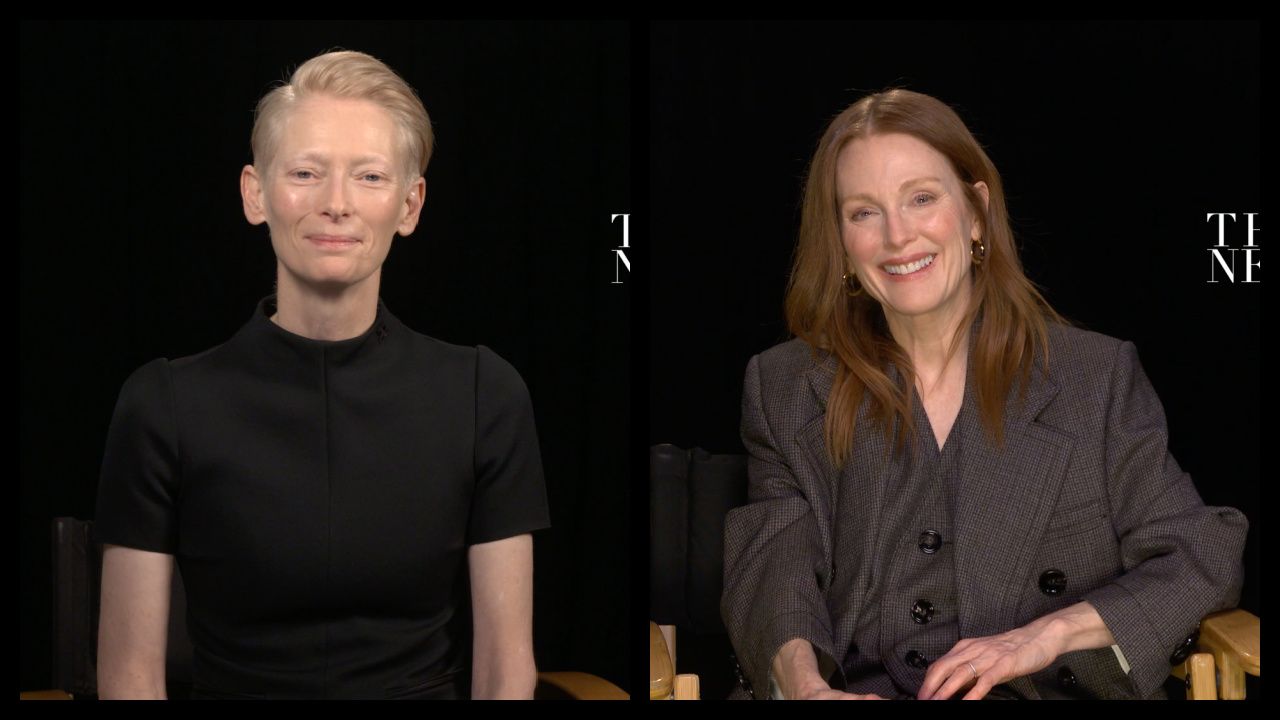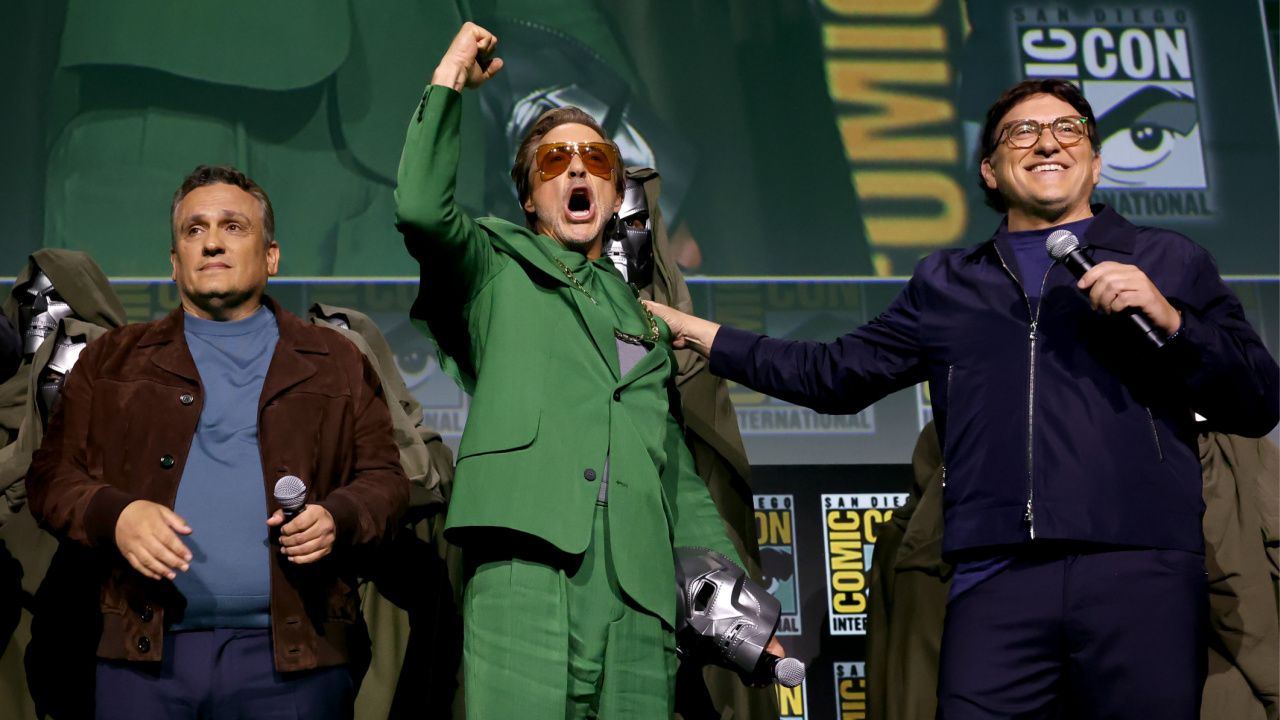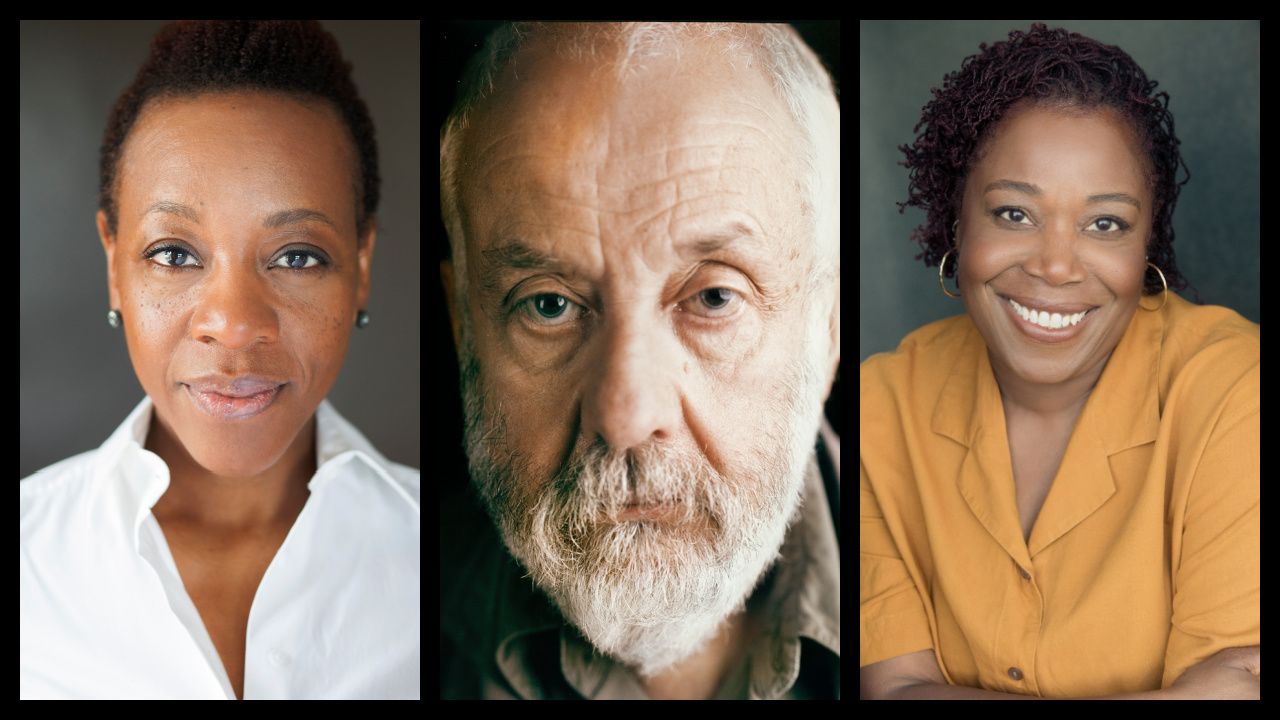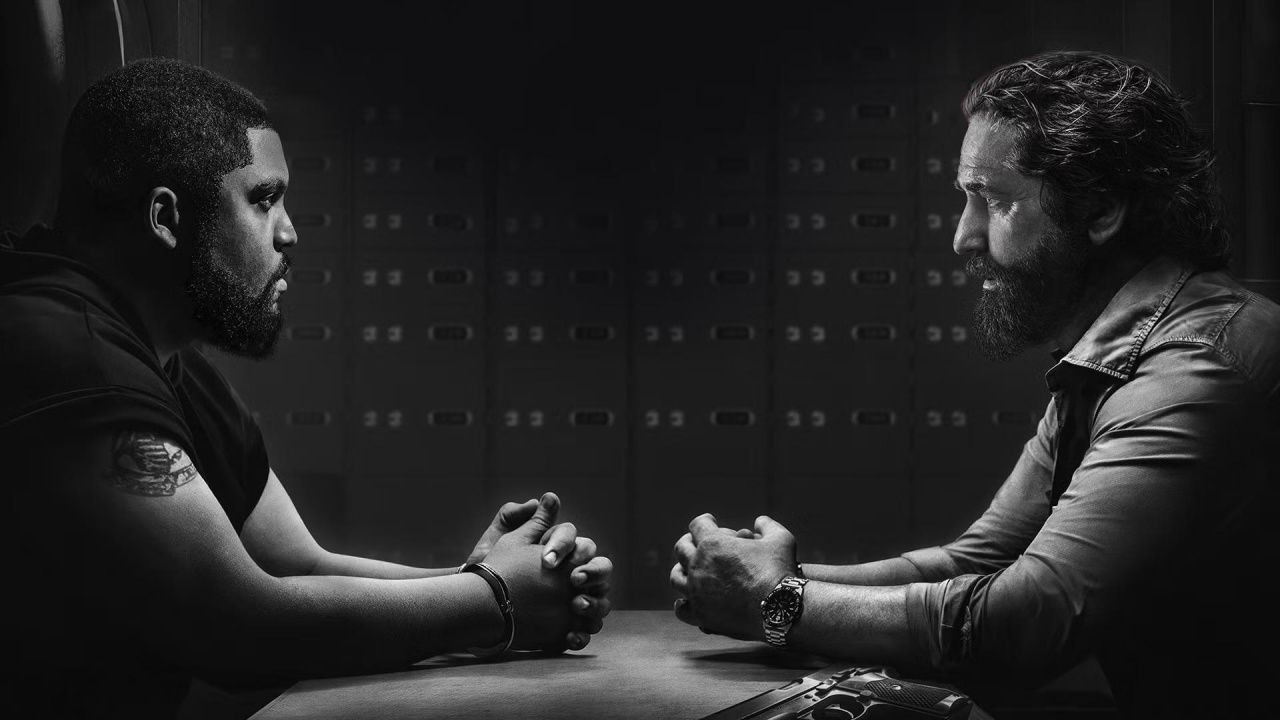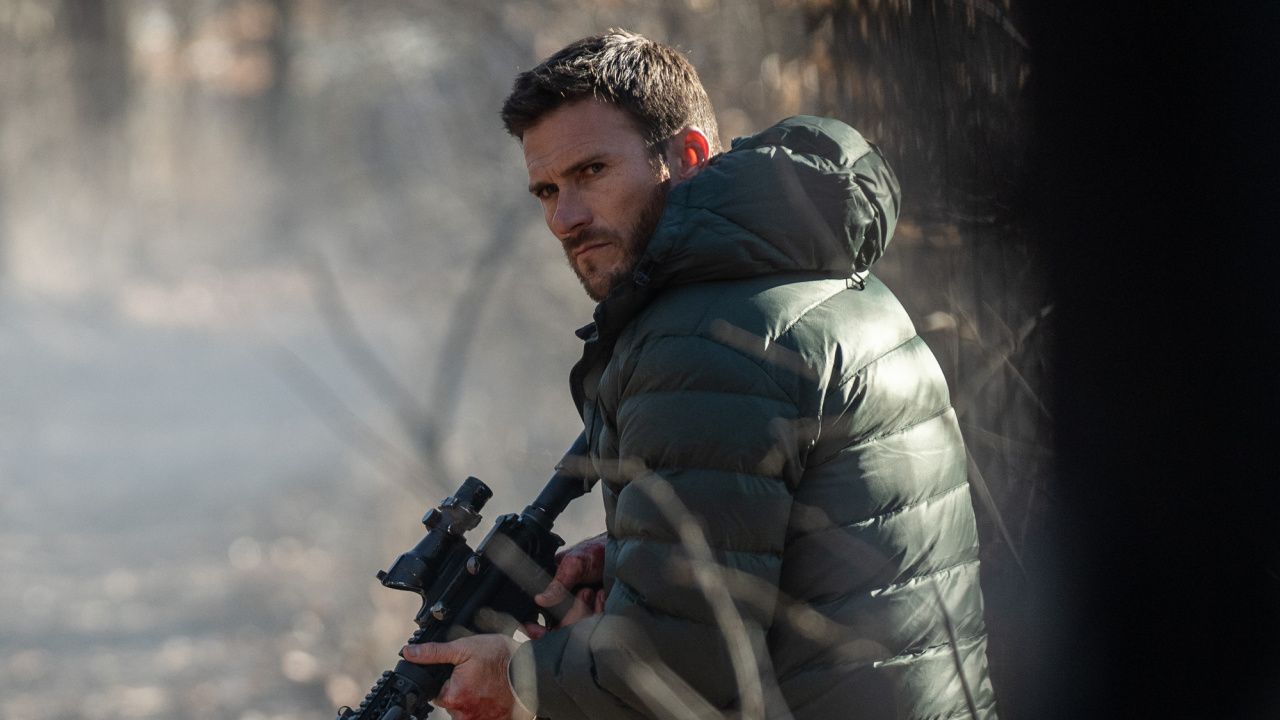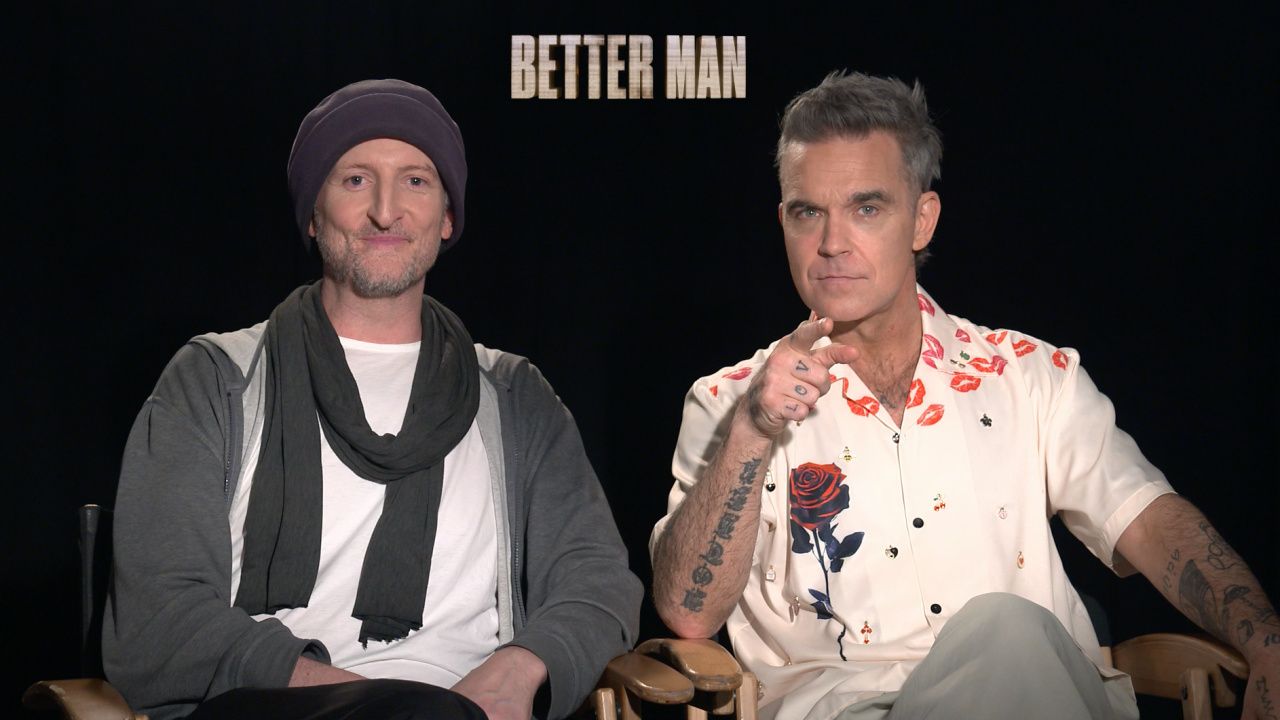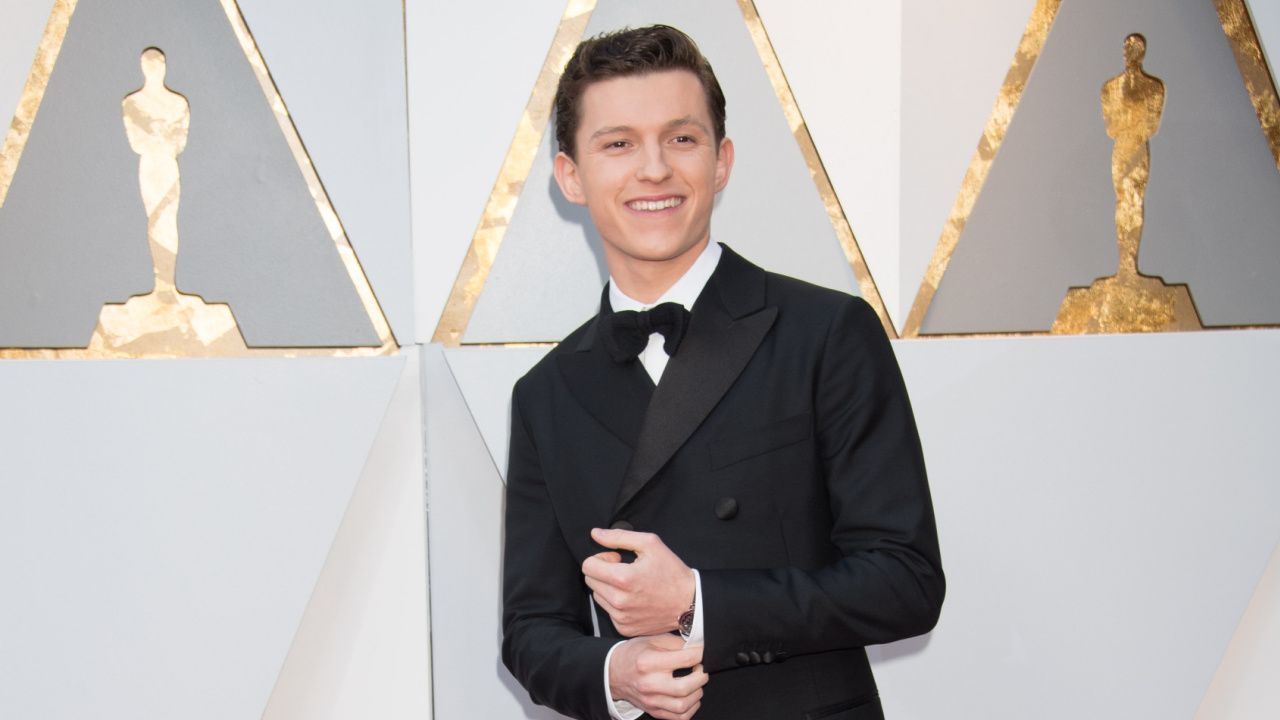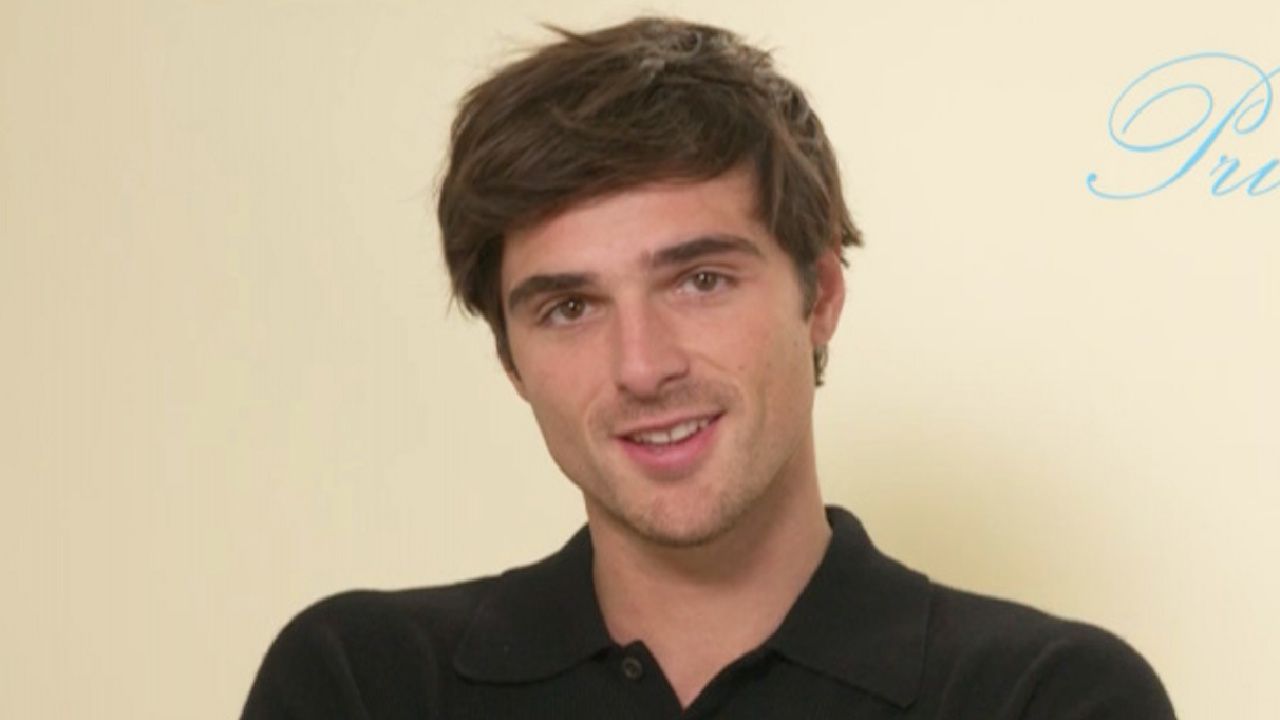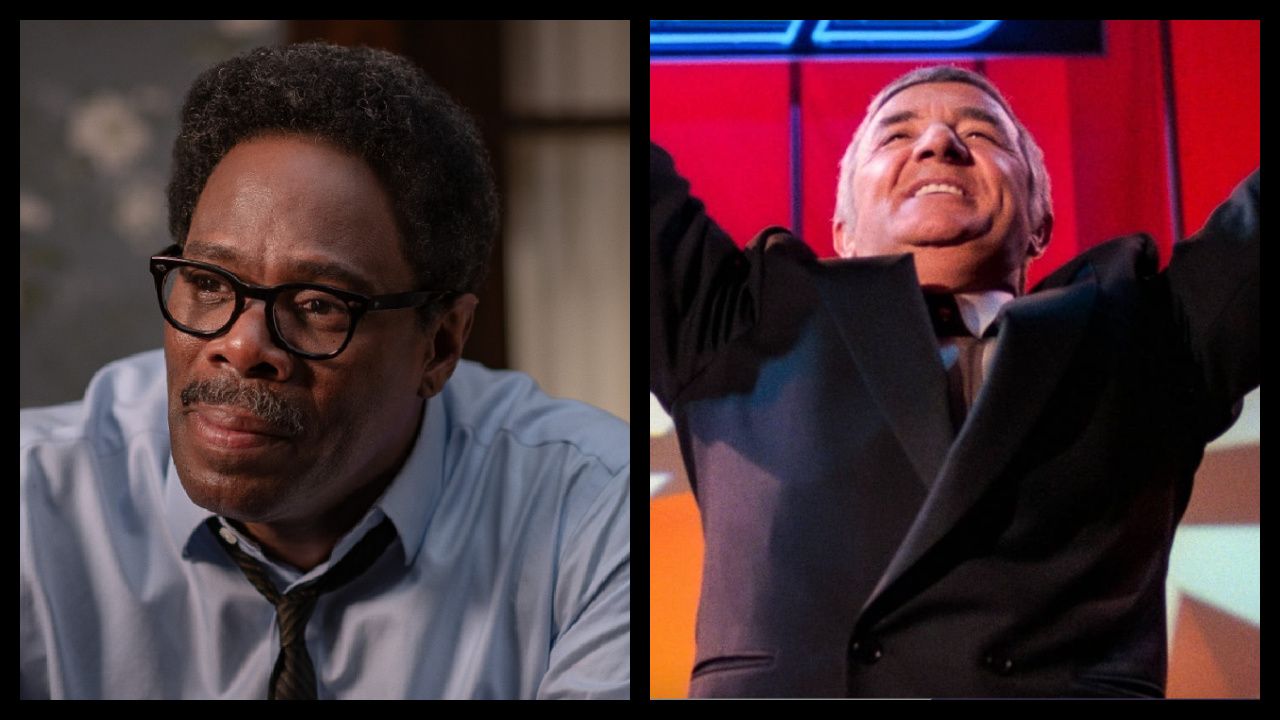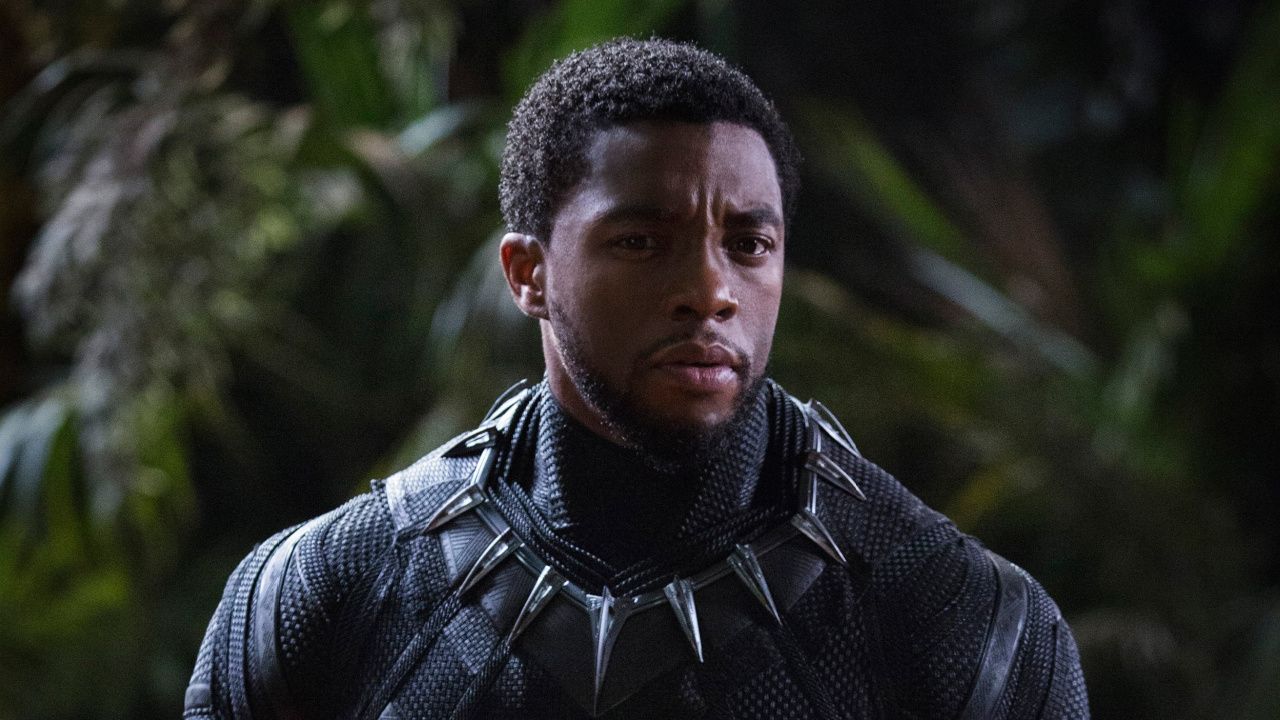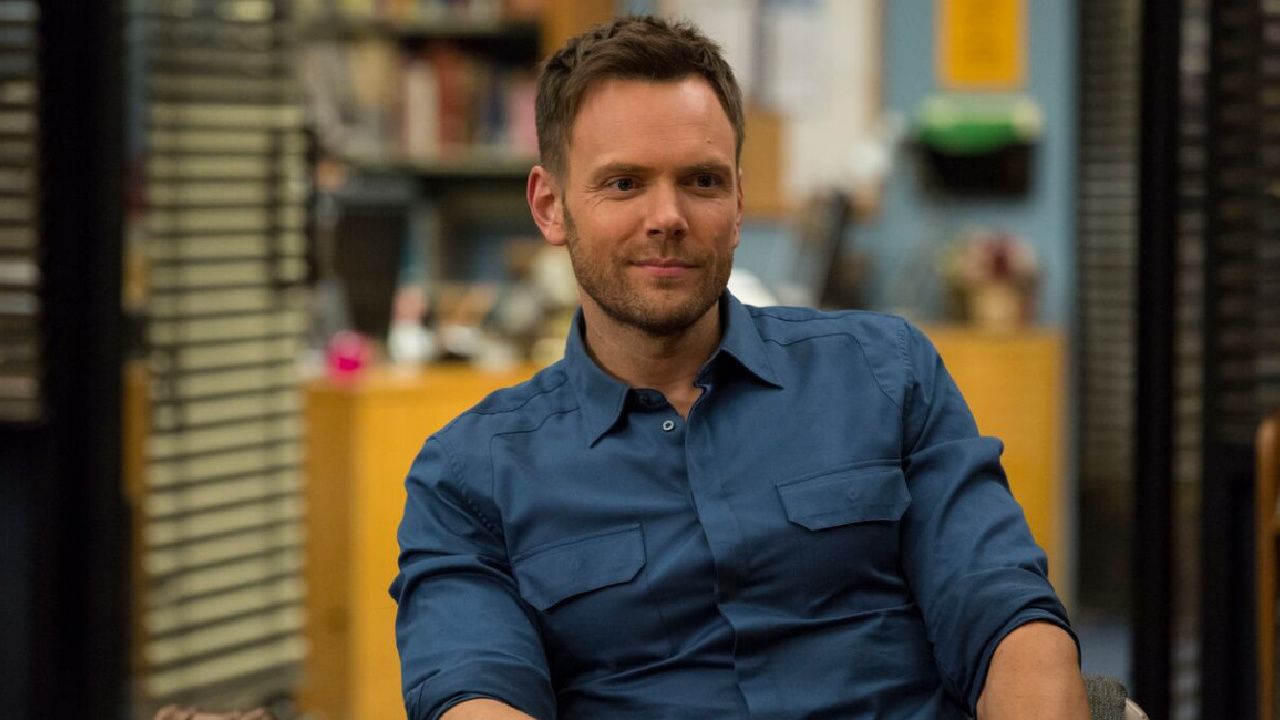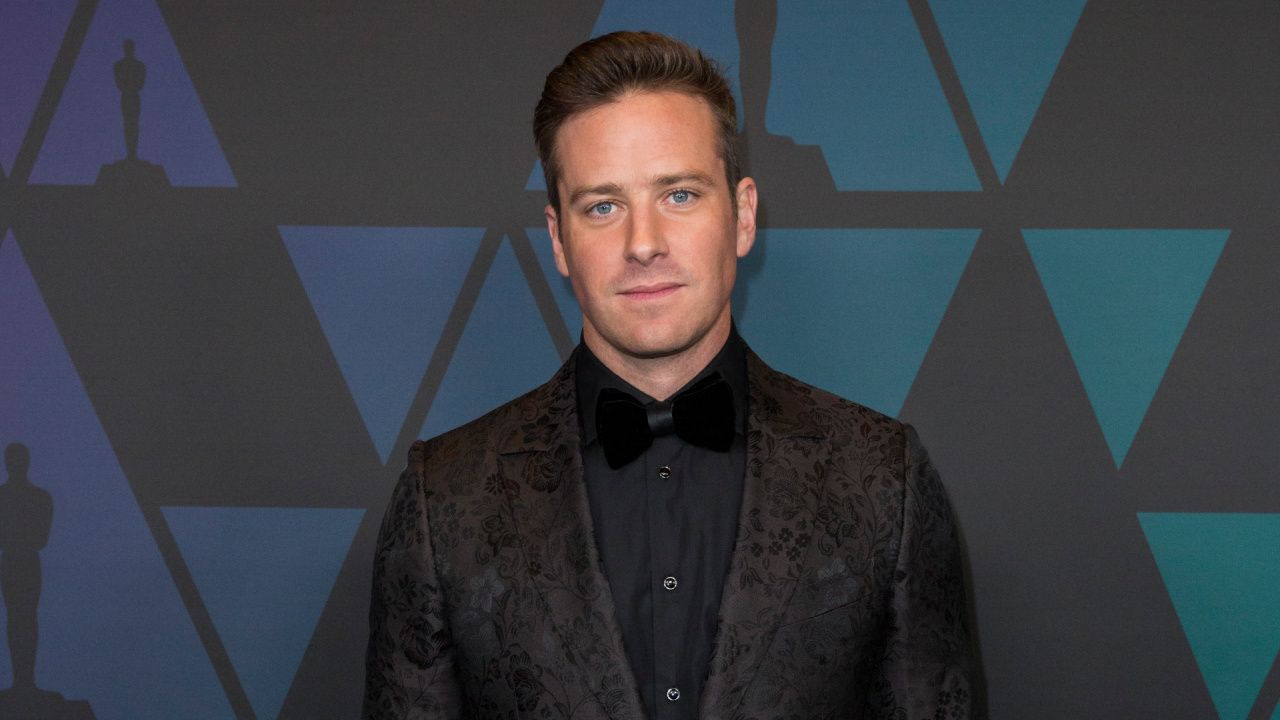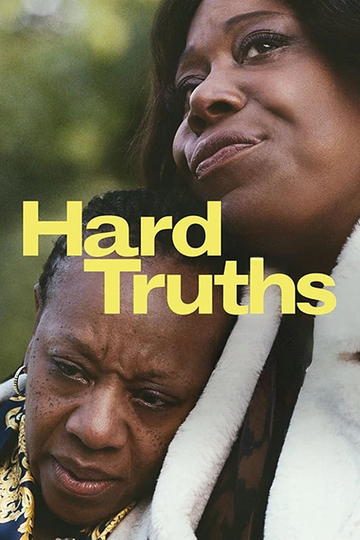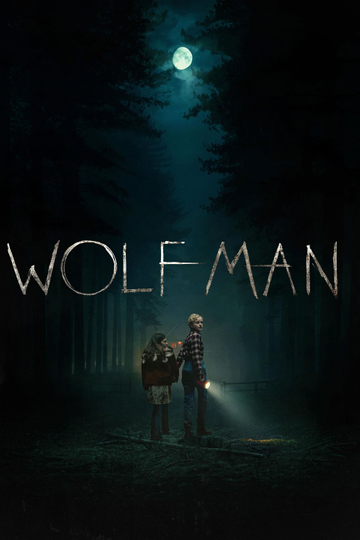‘Dickinson’ Star Hailee Steinfeld And Her Co-Stars Talk About The Third Season Of The Series
Steinfeld joins co-stars Anna Baryshnikov, Adrian Blake Enscoe, Ella Hunt, Amanda Warren, & Chinaza Uche and executive producer Alena Smith to talk about what audiences can look forward to in the third season of ‘Dickinson.’
In the 3rd and final season of ‘Dickinson,’ Emily Dickinson (Hailee Steinfeld) is writing more than ever, in spite of the Civil War raging throughout the country and the epic family fights raging at home. Steinfeld and her co-stars joined executive producer Alena Smith to talk about the new season.
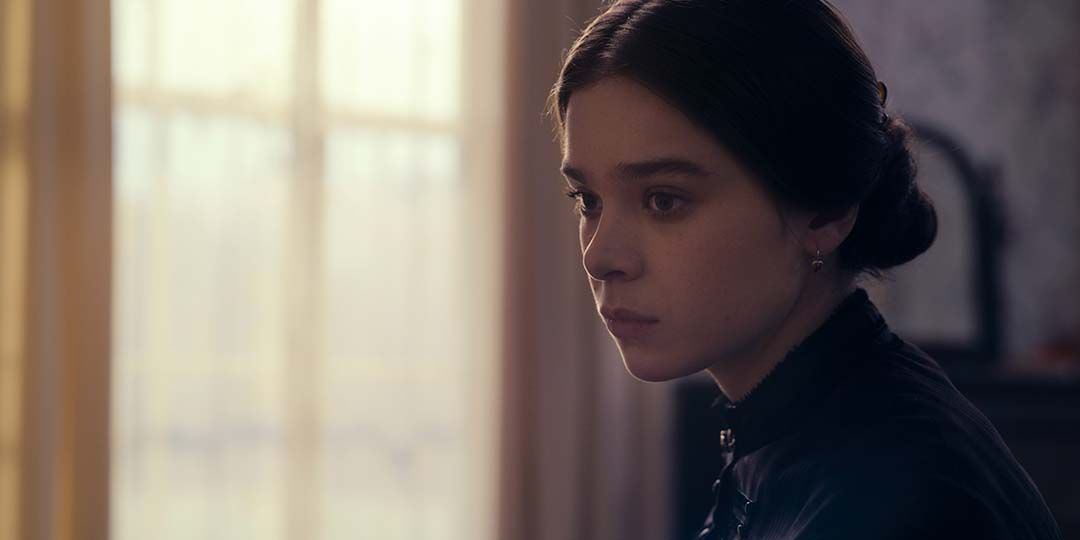
Hailee Steinfeld as Emily Dickinson in 'Dickinson'
First up, Hailee Steinfeld and Anna Baryshnikov discuss how the war is affecting their characters.
Moviefone: Hailee, How is Emily reacting to the Civil War, and how is it influencing her poetry?
Hailee Steinfeld: Well, very much so. This time in her life was known to be her most productive time as a writer, which I find so fascinating that from her very own room in her own home, she was still so deeply affected by what was going on in the outside world. And not only was there this division in the country, but in her own family. Everybody was experiencing that pain and that loss. And she was, well, desperately trying to figure out how she could be of any help. And she felt like she had to start with what was in front of her. And she quickly became what we referred to her as the Civil War nurse of her family. And she was tending to everyone's wounds and felt that ultimately through her writing, there had to be a way she could make an impact. And it's where she wrote some of her greatest poems.
MF: Well, this war is really raging. It's the forefront of everybody's mind, so Anna, how is Lavinia affected by it?
Anna Baryshnikov: Lavinia is very affected by the absence of eligible young men, because a lot of them are drafted or have suffered in the war. And I think she's coming to terms with something that happens, I think, to all of us in our 20s, but she's realizing that the choices that she's made have limited her options in the future. And I think the war is really compounding this question of, am I ever going to get married? Am I ever going to have my own children? And she's experiencing a lot of grief and the nation is a lot of grief, so I think she doubles down and indulges in that very sad girl way of feeling as mournful as possible and finds her way out of that through a little bit of wild performance art, which has been a really fun part of the season.
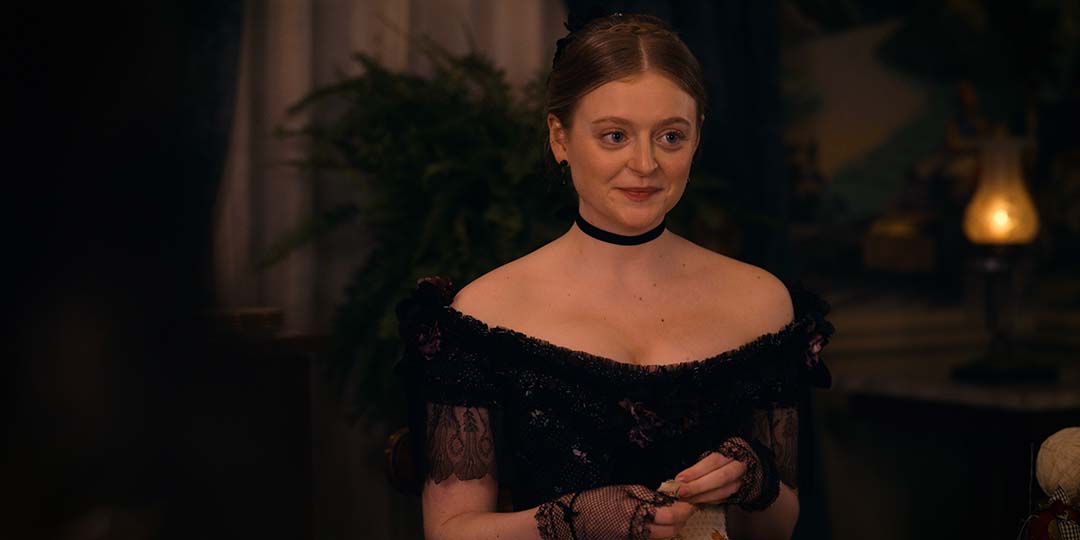
Anna Baryshnikov in 'Dickinson'
MF: I feel because of the place that Emily Dickinson is in, in this season and where her imagination is at, we have some really fun scenes in this season. What were some of those scenes like shooting? What can you talk about without giving too much away, Hailee?
Steinfeld: Well, one of the most exciting parts about this show is that her poetry takes us to wild places just by reading them. In having that as our template of where we get to go visually with this show and emotionally with this show has in the past seasons resulted in some of my favorite scenes. And this year we go to places that we have never really seen Emily and/or her family in before. And they're these surreal events, but they are as real as they might feel surreal.
And we don't necessarily know when we are in the reality and when we're not, because this is all Emily, what's going on in her mind, what she's feeling, and what she's living through. But we get to see Emily seeing herself as if she were in the war, and that's something that I was so intrigued by in reading that that's where we start, and we see a little bit of it in the trailer, which is why I don't feel like I'm giving too much away. But if I keep talking, I might. I do love that we are given the opportunity to go places that we haven't in the past, in this season.
Amanda Warren and Chinaza Uche talk about the changes their characters are going through.
Moviefone: Chinaza, why does Henry leave Amherst?
Chinaza Uche: I don't think he has a choice. And I've thought about this a little bit. I think, I believe in my heart that it's the best choice for his family. He knows that he is a hunted man and to get away from them is to protect them.
MF: And how does Betty feel about him leaving?
Amanda Warren: I think Betty has a lot of conflicting emotions that you will see her try and negotiate as best she can, dealing with all of the worry, all of the anxiety in season three. Because she does know that the cause is bigger than both of them and the fight for the cause will only serve them as a family and the community and the country in a better way.
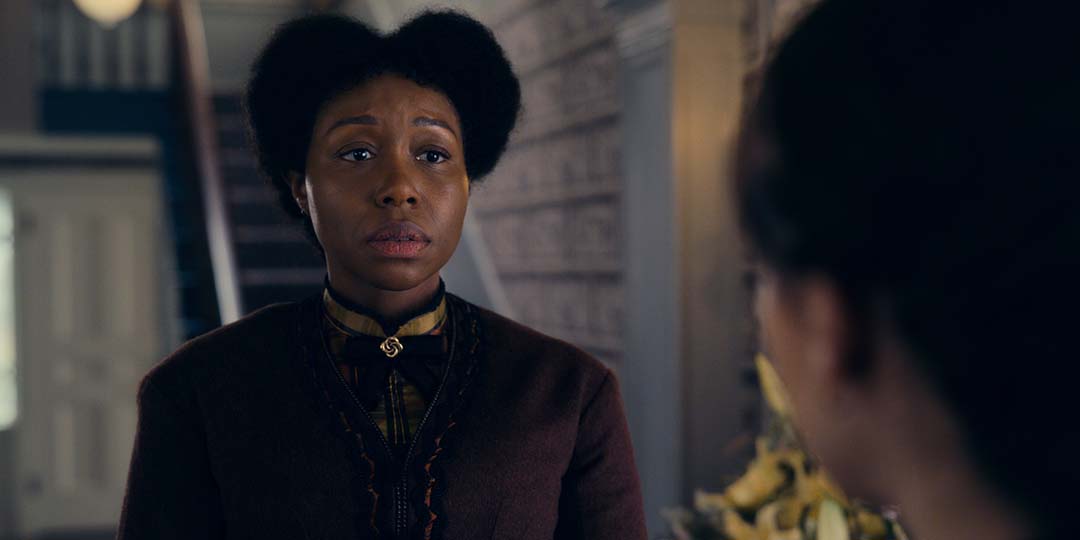
Amanda Warren in 'Dickinson'
So there's a lot of conflicting feelings and there's a lot of negotiation that's going on within her. And we see that on screen. As she's talking to people, going through the motions, you can just see that she's preoccupied with other thoughts. That she's not necessarily present in the way that we've seen her be the first two seasons.
MF: So Chinaza, Henry leaves home, he heads off to South Carolina, to the Warfront. So what is he there for? And did you do any research into this?
Uche: Yeah, I think he's in search of a purpose. He's in search of a new family. So I think he feels as if he's lost his own one and the clearest purpose is the fight for black citizenship, and he goes to the front lines to help that fight. And I think that gives him that purpose he's searching for. I definitely did some research. I read a little bit about the civil war, a little bit about the first South Carolina volunteers. About the realities of being a black soldier in that time, how you were paid half as much, how you really weren't armed, how there really was a debate as the front lines are creeping towards you. I think the show does a really good job of bringing this history up close and personal to us and making those people real, because they were, their lives were real. Their sacrifices were real.
MF: And Amanda back home, I feel like Betty's doing really well. In my mind I feel like a woman in the 1860s, her husband's gone I feel like she just would fall apart. But Betty's doing very. I mean, she has got, she's an entrepreneur, she's got her business going. She has a house guest as well.
Warren: It's a testament to how strong this woman is and how ahead of her time, her thought process, her way of going about life is, is really very admirable. And yeah, she's juggling a lot of things and business is booming, unfortunately in the midst of a civil war, there's a need for mourning clothes and mourning accessories, and she is successful in what most people would think is the worst way, but there's this push and pull in her life.
As so many independent female Americans go through, it is just like, I've got this great career going and my personal life, I'm trying to hold together. I've got a baby at home. It's a lot. And we see that independent single working mother woman in her. And then she is also a black woman in the north serving the community very, very well. And it's a beautiful thing to see our people in a different light in this time period. I think that we don't tell enough of the different paths that we walk throughout history, and this one is not what we're used to seeing. It is not typical at all and is just really beautiful to watch and experience. But that is what Betty's going through.
Ella Hunt and Adrian Blake Enscoe discuss the tension between their characters.
Moviefone: We're progressing, we're moving forward from season one yet, I feel that Austin is regressing. He's acting younger this season.
Adrian Blake Enscoe: Oh, yeah. Well, when you're confronting the trauma that you've been dealt with in your upbringing, oftentimes you have to go back to the basics. You have to relive your childhood. And I actually truly think that's what's happening with Austin in this season. Season two saw him really trying to make the world a better place in certain outward ways. Supporting an abolitionist newspaper from his barn and giving money to John Brown. But all of that came crumbling down at the end of season two, and he is realizing it's just not working. It's not going to fill the vacuum in his soul, and so he kind of has to go inside of himself. And that's a really tough process, as anyone who's been in therapy knows. Unpacking your trauma is really, really hard, but I am proud of the little guy. I think he stands up to his father for the first time in this season. And it's hard, but he is able to move forward. You'll see as you watch season three. He comes to a better place.
MF: And what are we seeing Sue do in reaction to Austin?
Ella Hunt: I think at the beginning of the season, Sue is inclined to erase Austin from her conscious as much as is humanly possible when living under the same roof with someone. But Austin is behaving in a way that Sue is not about. Sue is in this new chapter of her life where she's found ease and peace and happiness, and she is accepting and giving love and allowing herself to love Emily in a way that she hasn't allowed herself before. So quite understandably, she just doesn't want to put up with his crap. But actually, this season forces Sue to acknowledge the prejudices in herself, especially in regard to them as a family and building a life together.
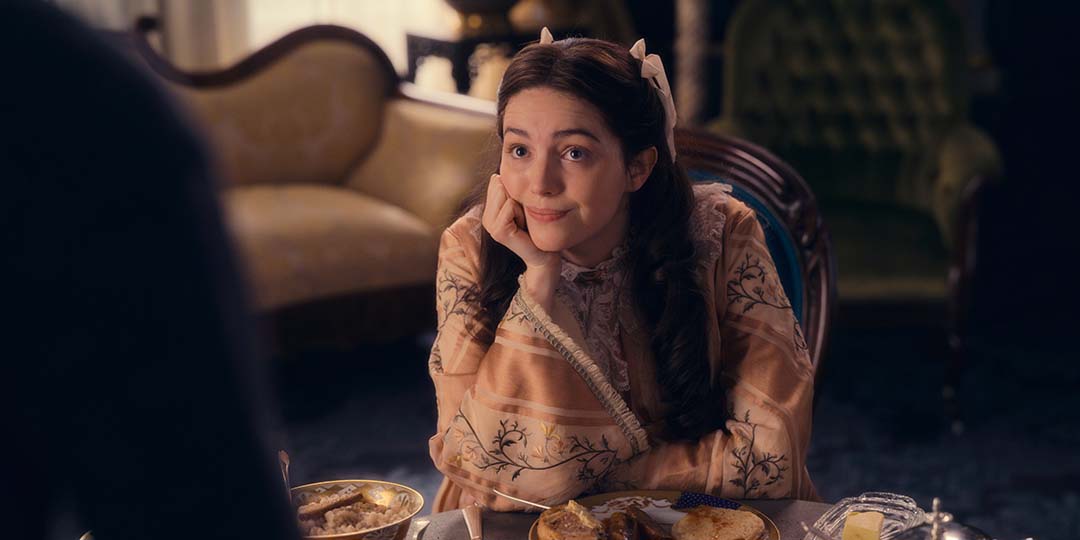
Ella Hunt in 'Dickinson'
And the season pushes Sue to step into the unconventionality in her nature, not just in her relationship with Emily, but in her relationship with Austin too. And I'm so proud of Sue for the way that later in the season, she feels so good about this bizarre... Within the context of our time, it's not bizarre at all to see her carving out this sort of family dynamic, but in the context of 1860, she's making some pretty boxy choices and I think it's a delight to watch.
Executive producer Alena Smith talks about bringing the series to a close.
Moviefone: We are at the very final chapter of this series. How do you feel?
Alena Smith: I feel just so full of joy and also some bittersweet sadness to be saying goodbye to this amazing team and group of people. And obviously this long journey that's been so personal for me, but I really am just so excited and proud of season three, and can't wait for everybody to see it.
MF: So as the creator, when you started out in season one, or even before season one, as you were planning you had ideas and themes and thoughts in your mind. Now that we're at the end, did it end the way you thought?
Smith: Yes. I always saw this as a three season journey that was going to tell the coming of age story of Emily Dickinson. And I knew that that would culminate in a season that took place during the years of the Civil War, because those are some pretty fascinating and incredible times in American history, but they also happen to be Emily's most prolific and sort of alive years as an artist, and really where she stepped into her own as the great poet that we remember her to be. So yeah, I'm just so glad that, despite global pandemics and all manner of other things, that we got to get to the final destination here and have this incredible season that takes place in the midst of the Civil War.
MF: This season and I feel is visually very exciting. I feel it has a lot to do with Emily's imagination, which has, I think, expanded in this season. What can the audience expect to see?
Smith: Yeah, I think that season three is definitely our biggest, boldest, most epic season. We've got battle scenes, and we've got trips down to the underworld and a trip to an insane asylum. I can't even think of every crazy thing that happens in season three, but I think that what makes it all so wonderful is the fact that the cast and this group of characters have grown so much and developed such depth and intimacy over the course of the seasons. And I think the audience feels that way too. Everyone's relationships now have history behind them and have grown more complex and more vulnerable in certain ways. So I think that that's what also creates a sense of depth and destiny to season three.
MF: So there's a lot of seriousness going on. It is a civil war, we're right in the midst of it. There's some discord within Emily’s own family, yet you're able to write some comedy in there. So where do you find that line between this is serious stuff, but we want to write something comedic in?
Smith: Yeah. I guess I'm somebody who can find dark stuff to be funny, and can find seemingly trivial stuff to actually be quite painful and sad. So for me, those lines can definitely be blurred just as a writer, as an artist. And I think that also, humor is a coping mechanism. I think that people who are going through hard times, which we all have been over these past few years, and which Emily and her family certainly are in the midst of the Civil War, humor is a place that we can go to find some warmth and some light in the darkness.
The third season of 'Dickinson' starts on November 5, on Apple TV+.












